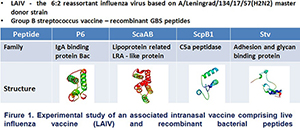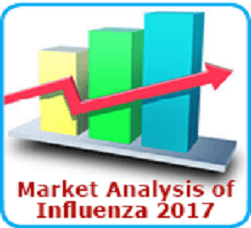
Yulia Desheva
Saint Petersburg State University,Russia
Title: Development of an associated vaccine against influenza and bacterial complications: where are we now?
Biography
Biography: Yulia Desheva
Abstract
Statement of the Problem: Bacterial co-infections are common in influenza infected patients, including H1N1 pandemic influenza. Development of peptide vaccines based on bacterial surface proteins is a new approach to the prevention of bacterial infections. For protection against respiratory pathogens it's desirable to use mucosal vaccines, which ensures the formation of systemic immunity including secretory IgA production. This allows to reach the effective resistance against viral and bacterial pathogens. When administered intranasally, live influenza vaccine (LAIV) proved the safety and efficacy against drift variants of influenza viruses.
Methodology & Theoretical Orientation: The main objective of our research was to study the factors that contribute to the protective effect of associated immunization LAIV and Group B streptococcus (GBS) recombinant peptides. In mouse model we evaluated antibody responses against all vaccine components and followed the protection against homologous or heterologous influenza virus challenge complicated with bacterial infections.
Findings: We demonstrated that merged viral and bacterial intranasal vaccination using LAIV and recombinant GBS peptides: 1) induced balanced adaptive immune response against viral and bacterial antigens; 2) provided advantageous protection against influenza infections followed by GBS or S. pneumoniae infection compared to only LAIV-only or GBS-only vaccination; 3) the enhanced lung protection after double challenge was associated with elevated expression of IFN-gamma which may indicate T-cell immunity induction. The LAIV alone partially protected mice against S. pneumoniae secondary infection.
The Conclusion & Significance: Associated intranasal immunization using LAIV and the recombinant GBS peptides increased the protective effect against influenza and bacterial complications. Also, we conduct the study of innate immune responses against viral and bacterial antigens when administered simultaneously in monocytes-macrophages. In our study we used a short-term local application of the bacterial recombinant proteins, which further should be compared with the chimeric constructs when bacterial epitopes will be incorporated into the viral vectors.


